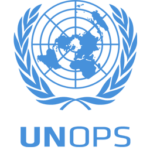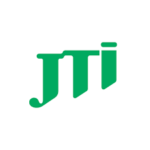Are you searching for procurement and supply chain jobs in Malawi? Ntchito.com is your premier destination for the most current and active positions within Malawi’s dynamic procurement and supply chain sector. Whether you’re interested in roles within multinational corporations, local businesses, government agencies, or non-governmental organizations (NGOs) in major cities like Lilongwe and Blantyre, our platform connects you with leading employers seeking skilled procurement and supply chain professionals. Advance your career by exploring diverse opportunities in procurement management, logistics coordination, inventory control, supplier relationship management, and more within Malawi’s thriving business landscape. Additionally, enhance your expertise with Courses & Trainings (Funded) and gain practical experience through Internship Opportunities.

Physical Assets Officer

Senior Physical Assets Officer

Senior Assistant procurement officer

Assistant Procurement Officer



Contracts Management Specialist

Operations Manager


Procurement and Disposal of Asset Manager




Procurement Officer





FAQs for Procurement and Supply Chain Jobs in Malawi
What educational qualifications are required for procurement and supply chain positions in Malawi?
Procurement and supply chain roles in Malawi typically require a strong educational background in relevant disciplines. Candidates should possess at least a bachelor’s degree in Supply Chain Management, Business Administration, Logistics, Procurement, or a related field from an accredited institution. For advanced positions, such as Supply Chain Managers, Procurement Directors, or Logistics Coordinators, a master’s degree or specialized certifications (e.g., Certified Supply Chain Professional (CSCP) or Certified in Logistics, Transportation and Distribution (CLTD)) may be necessary. Additionally, holding certifications from recognized institutions can significantly enhance a candidate’s qualifications and competitiveness in the job market. For those seeking further education, explore Bachelors Scholarship and Masters Scholarship opportunities to support your academic advancement.
Beyond formal education, practical experience is highly valued. Employers seek individuals with hands-on experience through internships, co-op programs, or previous employment in procurement and supply chain roles. Participation in Internship Opportunities can significantly strengthen your application by providing real-world experience and networking opportunities within the procurement and supply chain sector. Continuous professional development through Courses & Trainings (Funded) is also recommended to stay updated with the latest trends and best practices in supply chain management.
How is the demand for procurement and supply chain professionals evolving in Malawi’s economy?
The demand for procurement and supply chain professionals in Malawi is steadily increasing, driven by the growth of key economic sectors such as manufacturing, retail, agriculture, and construction. As Malawi continues to develop its infrastructure and expand its industrial base, the need for skilled professionals to manage procurement processes, optimize supply chains, and ensure efficient logistics operations grows correspondingly. This trend is further fueled by the rise of multinational corporations establishing operations in Malawi, creating a broad spectrum of job opportunities for qualified procurement and supply chain experts.
In addition to traditional procurement roles, there is a growing demand for professionals adept in digital supply chain solutions, such as e-procurement systems, supply chain analytics, and inventory management software. The integration of technology into supply chain operations is creating new opportunities for those with expertise in IT and data analysis within the procurement field. Staying informed about these industry trends through resources like Job in Malawi and Energy Sector Jobs in Malawi can help candidates identify emerging opportunities and align their skills with market demands.
What key skills and competencies are essential for success in procurement and supply chain roles in Malawi?
Success in procurement and supply chain roles in Malawi requires a combination of technical expertise and soft skills. Key technical skills include proficiency in procurement software, supply chain management systems, and inventory control tools. Candidates should be adept at negotiating with suppliers, managing contracts, and conducting cost-benefit analyses to ensure optimal procurement decisions. Additionally, a strong understanding of logistics coordination, transportation management, and warehouse operations is essential for ensuring the efficient flow of goods and services.
On the soft skills front, employers value excellent communication and interpersonal abilities, as procurement and supply chain professionals often interact with diverse stakeholders, including suppliers, internal departments, and customers. Critical thinking and problem-solving skills are crucial for addressing supply chain disruptions, optimizing processes, and developing innovative solutions to complex logistical challenges. Organizational and time management skills are also important for handling multiple tasks, managing deadlines, and ensuring timely delivery of projects. Enhancing these skills through Courses & Trainings (Funded) and Soft Skills Training can make candidates more attractive to potential employers and facilitate career advancement.
How can procurement and supply chain professionals in Malawi advance their careers and stay competitive in the job market?
Career advancement for procurement and supply chain professionals in Malawi involves a strategic combination of education, skill development, and networking. Pursuing advanced degrees or specialized certifications can open doors to higher-level positions and specialized roles within the supply chain sector. Engaging in continuous learning through Training Opportunities helps professionals stay updated with the latest industry trends, technological advancements, and best practices in supply chain management.
Networking is another critical component for career growth. Building connections with industry peers, attending procurement and supply chain conferences, and participating in professional associations can provide valuable insights and job leads. Additionally, gaining experience in diverse roles within procurement and supply chain, such as procurement analysis, logistics management, or supply chain optimization, can enhance a professional’s versatility and marketability. Utilizing resources like Consultancy Projects and Internship Opportunities can also provide practical experience and facilitate transitions into more advanced roles. Furthermore, developing a strong personal brand and leveraging online platforms, such as LinkedIn, can increase visibility and attract potential employers.
What are the common challenges faced by procurement and supply chain professionals in Malawi, and how can they overcome them?
Procurement and supply chain professionals in Malawi often encounter challenges such as infrastructure limitations, regulatory hurdles, and supply chain disruptions. Inadequate transportation infrastructure can lead to delays in the delivery of goods, increasing operational costs and affecting overall supply chain efficiency. Regulatory complexities, including import/export regulations and compliance requirements, can impede the smooth flow of goods and services, requiring professionals to navigate intricate legal frameworks effectively.
Supply chain disruptions, whether due to political instability, natural disasters, or economic fluctuations, can significantly impact procurement and logistics operations. Additionally, limited access to advanced procurement technologies and data analytics tools can hinder the ability to optimize supply chain processes and make informed decisions. To overcome these challenges, procurement and supply chain professionals can seek out continuous education and training to enhance their knowledge of regulatory requirements, supply chain resilience strategies, and the latest procurement technologies. Engaging in Courses & Trainings (Funded) can provide access to the latest tools and methodologies in supply chain management. Building a strong professional network through Networking Strategies for Job Seekers can offer support, resources, and collaborative opportunities to address infrastructure and regulatory challenges. Additionally, advocating for better infrastructure investments and leveraging technology to improve supply chain visibility and efficiency can contribute to overcoming logistical obstacles in Malawi’s procurement and supply chain sector.